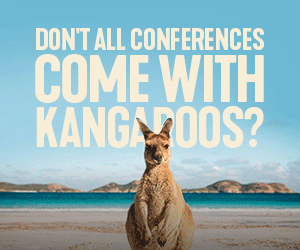Leading the Association – One Conversation at a Time

Ideas create communities, but they don’t necessarily create cohesion or engagement – while ideas are critical to membership organisations, it is conversations that create communities of change. Research at the Center for Creative Leadership (CCL) has found that individuals may be more connected to a cause or an idea than to an organisation and its leader. Yet, it is up to leaders to transform ideas into a conversation, if they want a community of inclusion, solidarity, and engagement.
Stimulating conversations make you a better leader. By changing the discourse from a directed, top-down approach to a conversation that stimulates and engages members, leaders keep conversations dedicated to discovery. Asking questions with the sole intent to explore helps teams – in which people may be divided by topics, geographies and reporting lines – find the question central to everyone’s concern. Leaders who invite members into conversation move their organisations into the space of collective intelligence and exploration.
Move from directive leader to facilitative leader
Many leaders feel isolated due to the high demands and low amount of support staff. They feel personally responsible for the success or failure of an organization and have little personal buffer space around the job and themselves. Yet, as leaders extend an open invitation to conversation, they become facilitative leaders who are then able to seek wisdom from members. Shared experiences give people a sense of unity and collective memory. When these experiences are conversational, we find more loyal and motivated people.
With geographically diverse members, leaders may be unable to meet every member, but they may encourage the development of smaller groups where local members can meet and converse.
Getting people into engaged communities
Facilitative leaders invite members to move beyond a connected cause and into a long-term relationship with the organisation itself by entering conversations with a mind open to true listening and the ideas uncovered. The only limit to stimulating conversations is the SPACE, FACE, PLACE, and BASE available.
- Make SPACE for conversation. Create mental-space and time-space to freely explore ideas, go on tangents or dive deep into a subject. Protect yourself from distractions that lay outside of the circle of immediate contact with your conversation partner.
- Make your conversation FACE. Our expression and body language emit a signal – saying ‘talk with me’ or ‘don’t go there.’ Let your face and tone of voice be signal not of busy-ness, but of acceptance that better conversations are possible, desired and welcome.
- Go to a conversation PLACE. Find a place that inspires a sense of possibility, while letting you feel at home. Put yourself in a physical environment that is different enough to be stimulating and familiar enough to be safe. This may be in your office, but is more likely to be in a café, lobby or park bench.
- Build your conversations on a BASE. Better dialogue at work requires honest foundations to make it happen. Design a question that is relevant and unanswered, then invite colleagues to mutually explore the subject, in an atmosphere of genuine listening and empathy.
Conversations can also happen in online or in disparate communities by following these same practices. Leaders can use teleconferencing, open Q&A sessions, open chat dialogues, or town hall style phone calls. Ask users on virtual platforms to find their PLACE. Find event locations with private nooks for comfortable conversations to flow.
An association who cultivates stimulating conversation
The International Association of Facilitators (IAF-world.org) is specialised in participatory experiences, so it was a natural place to explore facilitative leadership. We gathered a three dozen of their top facilitators to explore how to unite people. This was a Dialogue Experiment to explore how to get people talking. Through this experience, we identified five practices that bring about stimulating conversation:
- Invite conversation. Make your intention and desire for dialogue known.
- Ask the question. Start an inquiry that can surprize and intrigue people.
- Be present. Let yourself be fascinated, open and thankful for conversations that arise.
- Be inclusive. Widen your discussions to large and diverse populations
- Make meaning. Search for the human story that binds people together.
Skilled facilitators actively create an environment that cultivates inclusion. As a leader of an association, we also need to create communities that share values, openness, compassion, and curiosity.
Leaders of organisations communicate. Leaders of change must converse. Only by intentionally seeking open conversations can a leader engage the members of an organisation to be part of aligned solution. Stimulating conversations create a thread of shared understanding through all who participate, acting a cord to unite them as advocates of change.
About the Center for Creative Leadership (CCL)
CCL® is a top-ranked global provider of executive education that develops better leaders through its exclusive focus on leadership education and research. CCL help organizations worldwide, in both private and non-profit sectors, build their leadership capacity and make a true, sustainable difference.
About Jeffer London and the Dialogue Experiments
Jeffer London is Strategic Relationship Director at CCL© EMEA. He is the go-to-person for top teams who want to shape the human side of strategy. His interventions focus on dialogue, team dynamics and innovation. His leadership has led to rebranding, service transformation, best practices, a Cannes Lions award – and most of all organization-wide engagement. Jeffer is the author of the forthcoming book,Stimulating Conversation: How To Get People Talking and host of the #stimulatingconversation project.
Photo credit: Photo of the conversations at Berlin Change Days 2017, facilitated by Holger Nauheimer, Jacques Chlopczyk and Jeffer London
Other Articles
About Us
Supported by the Union of International Associations (UIA), the International Association of Professional Congress Organisers (IAPCO) and the Interel Group, the global public affairs and association management consultancy, Headquarters Magazines serve the needs of international associations organising worldwide congresses.















